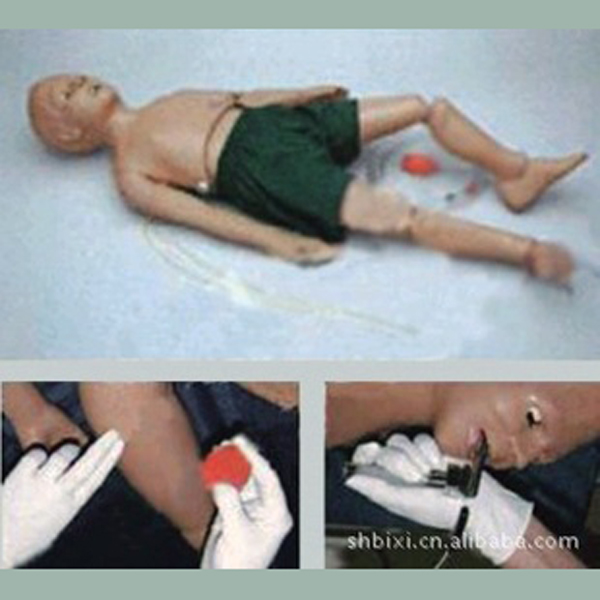In the field of medical education and training, how to effectively combine the esoteric medical theory with practical clinical operation has always been a common concern of educators and medical personnel. Especially for the field of child care, due to the particularity of children's physiological structure and their inability to accurately express their feelings, the combination of theory and practice is particularly important. The three-year-old child nursing simulator is a solid bridge connecting theory and practice.
First, the physical characteristics and common health problems of three-year-old children can be realistically reproduced. From body temperature, pulse rate to breathing rate, and even to skin touch and expression changes, the simulated human strives to be no different from the real child. This simulation not only allows learners to practice in a safe, risk-free environment, but also helps them better understand the complexity and diversity of child care.

Secondly, it provides rich interactive scenes and case simulation. Through preset or customized cases, learners can face a variety of child health challenges, such as sudden illness, accidental injury, etc., and perform emergency treatment and care operations in a simulated environment. This practical learning style not only deepens the learners' understanding of theoretical knowledge, but also improves their adaptability and practical skills.
More importantly, focus on cultivating learners' humanistic care and communication skills. In simulated nursing, learners need to learn how to build a trusting relationship with the "little patient", how to conduct nursing operations with a gentle and patient attitude, and how to remain calm and professional in the face of the anxiety of the child's parents. The development of these soft skills is essential to being a good child caregiver.
In summary, as a bridge from theory to practice, nursing simulators for three-year-old children not only improve learners' professional knowledge and skill level, but also promote their humanistic literacy and communication ability. In the future medical education and training, three-year-old child care simulators will continue to play an important role in cultivating more excellent child care personnel.
